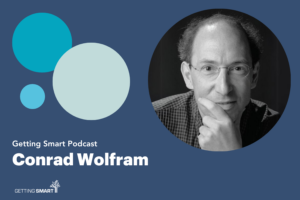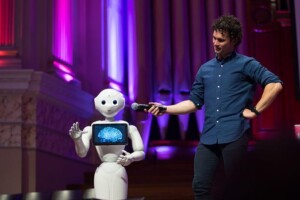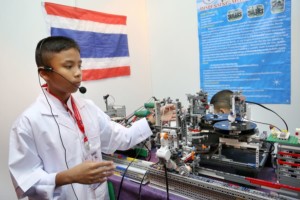Learning Today. Solving for Tomorrow.

This post was originally published on the Ewing Marion Kauffman Foundation’s blog.
Tom Vander Ark isn’t afraid of bold ideas—like how to reimagine education for a reality transformed by technology. That opportunity—cradled in the cusp of learning and work—challenges the status quo and our notion of the future of education for all students.
During Vander Ark’s recent visit to the Foundation, community members and associates recognized the necessary balance of solving for today’s challenges while preparing for the promise of tomorrow. And we grappled with many questions.
How do we address the urgency to solve for a rapidly approaching future? To prepare the 3.5 million students who, this year, will receive diplomas that are no longer a predictor of adequate preparation for college or careers? Or to prepare Generation A for jobs that don’t yet exist today?

“I want schools that are alive with the sense of possibility,” Vander Ark says. That means evolving beyond the traditional path of scholarship that has largely been the standard for high school graduation for a century.
In a recent blog that elevates two Kansas City-area schools using Expeditionary Learning, Vander Ark and co-author Corey Scholes, director of education for the Kauffman Foundation, examine project-based learning programs designed to cultivate skills for an evolving world.
“A good challenge has the potential to change young people’s belief in themselves and their understanding of the world. An extended challenge uniquely builds self-management and growth mindset. A team project builds social awareness and collaboration. A well-developed project builds communication, critical thinking and problem-solving skills,” says Vander Ark.
It may be these valuable skills that can take students beyond status quo to truly prepare all students for the endless possibilities of life and learning after high school.
For more, see:
- Factory-Model Change Won’t End the Era of Factory-Model Schools
- Creating Tomorrow’s Moonshot Thinkers
- Educating for Global Competence: 6 Reasons, 7 Competencies, 8 Strategies, 9 Innovations
Stay in-the-know with all things EdTech and innovations in learning by signing up to receive the weekly Smart Update. This post includes mentions of a Getting Smart partner. For a full list of partners, affiliate organizations and all other disclosures, please see our Partner page.





0 Comments
Leave a Comment
Your email address will not be published. All fields are required.